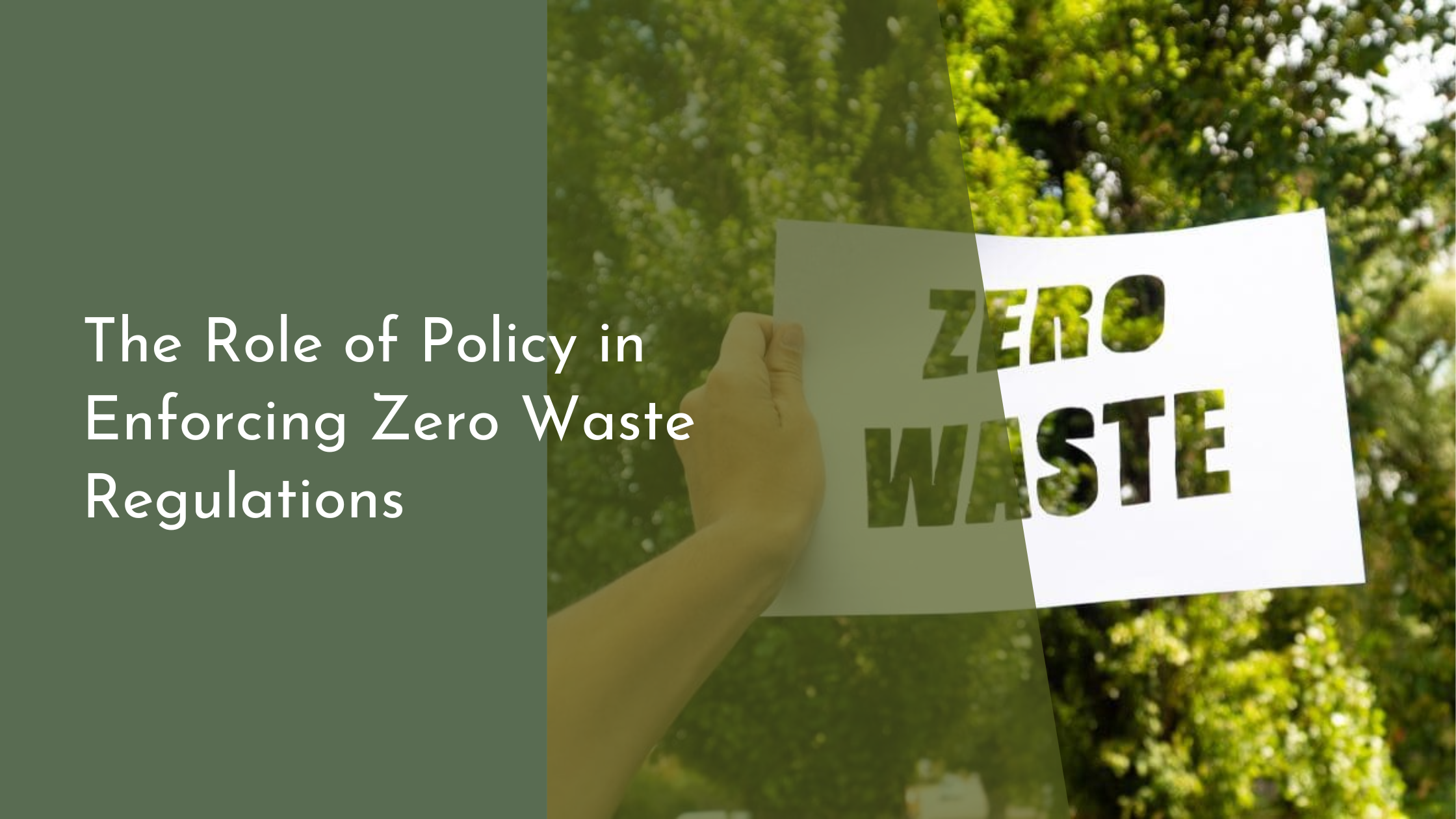The Role of Policy in Enforcing Zero Waste Regulations
In a world increasingly conscious of environmental sustainability, the concept of zero waste has emerged as a beacon of hope for a cleaner, greener future. Zero waste is more than just a trendy buzzword; it represents a comprehensive approach to resource management aiming to eliminate waste through thoughtful design and policy intervention. This article delves into the critical role of policy in enforcing zero waste regulations, exploring how governments and communities worldwide are championing this transformative movement.
Understanding Zero Waste: A Global Movement
Zero waste is a philosophy and lifestyle aimed at minimizing waste and maximizing recycling. The global movement seeks to redesign resource life cycles so that all products are reused, with the objective of sending zero waste to landfills, incinerators, or the ocean. By emphasizing systems changes and consumer responsibility, zero waste encourages not only recycling but also rethinking how products are designed, consumed, and disposed of. With growing public awareness and advocacy, zero waste has gained significant traction, influencing businesses, municipalities, and individuals alike to rethink their waste-generating habits.
The global zero waste movement has been propelled by environmental concerns, particularly the adverse effects of pollution and climate change. Many countries have embraced zero waste principles as a means to combat the increasing pressure on landfills and the environmental degradation caused by traditional waste management practices. International campaigns and organizations have played pivotal roles in spreading awareness, sharing best practices, and fostering a global network of communities committed to achieving zero waste. This collective effort highlights the importance of policy interventions in nurturing and sustaining the movement’s momentum.
Key Policies Driving Zero Waste Initiatives
Governments around the world have implemented a range of policies to drive zero waste initiatives, reflecting their commitment to environmental sustainability. One of the primary strategies has been setting ambitious waste reduction targets, which compel both public and private sectors to innovate and adopt sustainable practices. Policies such as extended producer responsibility (EPR) require manufacturers to take responsibility for the entire lifecycle of their products, including post-consumer disposal. These policies incentivize companies to design products that are easier to recycle or compost, thereby reducing the overall waste generated.
Furthermore, governments have introduced landfill bans on specific waste items, such as electronic waste and single-use plastics, to encourage recycling and change consumer behavior. Incentive-based policies, like “pay-as-you-throw” programs, charge residents based on the amount of waste they dispose of, thus motivating waste reduction at the household level. In addition to legislation, awareness campaigns and educational initiatives are critical components of policy frameworks, helping to foster a culture of sustainability and encouraging communities to embrace zero waste principles.
Challenges in Implementing Zero Waste Regulations
Despite the positive impact of zero waste policies, several challenges hinder their successful implementation. One significant obstacle is the resistance from industries and consumers accustomed to traditional waste management practices. Shifting to a zero waste model often requires substantial changes in production processes and consumer habits, which can be difficult to achieve without broad-based support and understanding. Additionally, the lack of standardized definitions and metrics for zero waste can create confusion and inconsistencies in policy application, complicating enforcement efforts.
Another challenge is the financial and logistical burden associated with transitioning to zero waste systems. Implementing comprehensive waste management strategies often requires significant investment in infrastructure, technology, and workforce training. For many municipalities, especially in developing regions, limited resources and competing priorities can impede the progress of zero waste initiatives. Overcoming these challenges necessitates collaboration among governments, businesses, and communities to develop innovative solutions and share best practices, ensuring that zero waste regulations are both effective and equitable.
Success Stories: Communities Embracing Zero Waste
Around the world, several communities have become shining examples of successful zero waste implementation, showcasing the benefits of cohesive policy and community engagement. The city of San Francisco, for instance, has achieved a remarkable reduction in landfill waste through comprehensive recycling and composting programs, supported by robust policies and public education campaigns. By fostering partnerships with local businesses and organizations, San Francisco has created a culture of sustainability that permeates every aspect of city life.
In Kamikatsu, a small town in Japan, residents have embraced an ambitious goal of becoming completely zero waste. Through a community-driven effort, the town has implemented a meticulous waste-sorting system with over 45 categories, ensuring maximum recycling and minimal landfill contribution. This success story highlights the power of collective action and local policy tailored to specific community needs, inspiring other regions to adopt similar zero waste practices.
The journey towards a zero waste future is a challenging yet rewarding endeavor that requires the collective efforts of individuals, communities, and governments worldwide. Effective policy interventions are crucial in setting the stage for sustainable practices, driving innovation, and fostering a culture of environmental stewardship. As more communities demonstrate the tangible benefits of zero waste, the path forward becomes increasingly clear. By continuing to refine policies, overcome challenges, and share success stories, the global movement towards zero waste can transform the way we interact with our planet, ensuring a cleaner, healthier future for generations to come.

